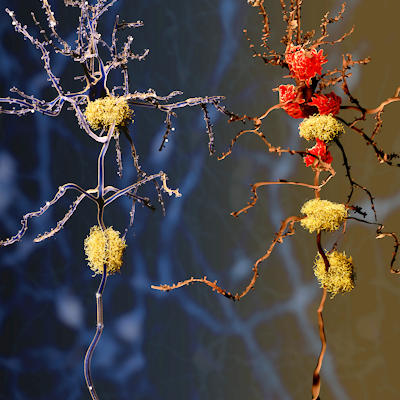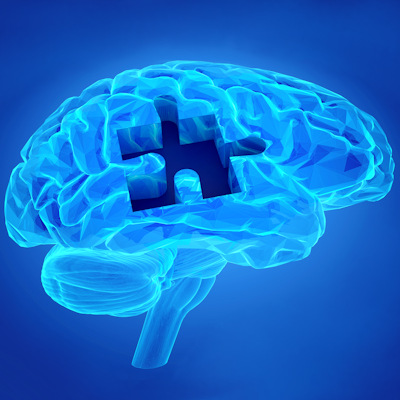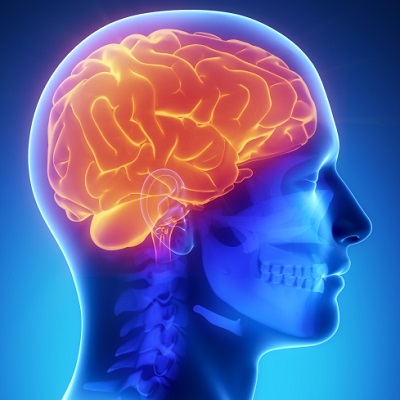November 17, 2022 -- Massachusetts Institute of Technology (MIT)-based researchers investigated the gene variant APOE4, which significantly increases the risk of Alzheimer's disease. Their study, published November 16 in the journal Nature, reveals APOE4's consequences in the brain and provides potential pharmaceutical-based treatment strategies.
Combining evidence from postmortem human brains, human brain cell cultures, and mice, the study showed that when people have one or two copies of APOE4 -- rather than the more common APOE3 variant -- cells called oligodendrocytes fail to transport the fatty molecule myelin which normally wraps neuronal axons -- the "wiring" that makes brain connections. Without proper myelination, neuronal communications are degraded.
The researchers used single nucleus RNA sequencing (snRNAseq) to compare gene expression in people with APOE4 versus APOE3. In APOE4 brains, cholesterol aberrantly accumulated within cell bodies, but was lacking around neural axons. The more APOE4 copies, the greater the effect.
The team used stem cells to create oligodendrocyte cultures engineered to differ only by whether they had APOE4 or APOE3. APOE4 oligodendrocytes hoarded extra cholesterol but transported less cholesterol out to their membranes. When co-cultured with neurons, the APOE4 oligodendrocytes failed to myelinate the neurons as well as APO3 cells. In postmortem brains less myelination also occurred in APOE4 than APOE3 carriers. Similar results occurred in mice engineered to harbor human APOE4 versus APOE3.
Applying cyclodextrin, which aids cholesterol transport, to cultured APOE4 oligodendrocytes reduced cholesterol accumulation within cells and improved myelination in neuron co-cultures. APOE4 mice treated with cyclodextrin performed significantly better on memory tests than untreated mice, suggesting improved myelination correlates to improved cognition. Researchers contend that correcting specific lipid dysregulations could help counteract APOE4's contributions to Alzheimer's pathology.
"This paper shows very clearly from the snRNAseq of postmortem human brains in a genotype specific manner that APOE4 influences different brain cell types very distinctly," MIT professor and co-author Li-Huei Tsai, PhD, said in a statement. "I feel that lipid dysregulation could be this very fundamental biology underlying a lot of the pathology we observe."
Copyright © 2022 scienceboard.net











